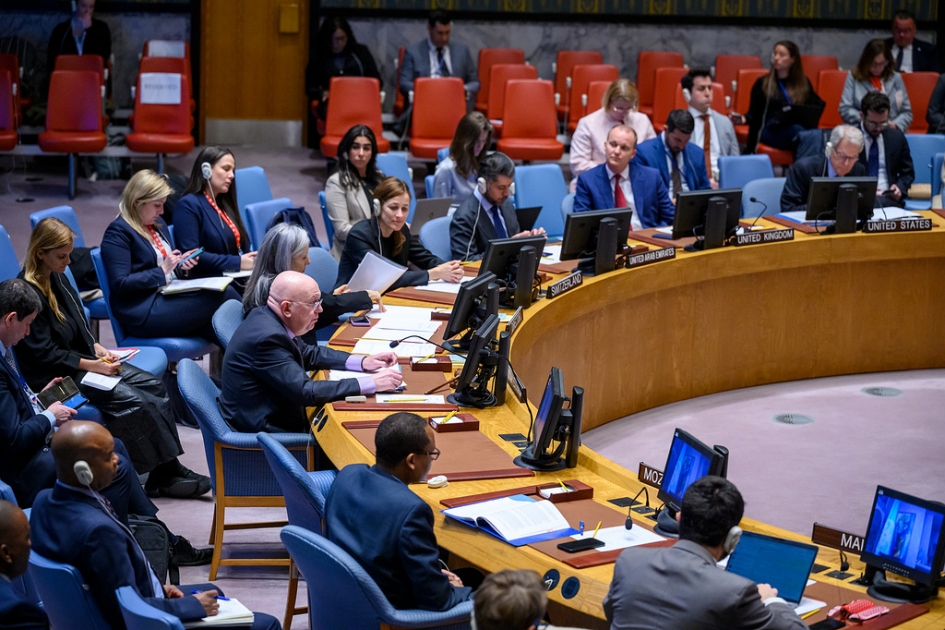Statement by Permanent Representative Vassily Nebenzia at UNSC briefing on Haiti
We welcome Minister for Foreign Affairs of Haiti Jean Geneus and Minister for Foreign Affairs of the Dominican Republic Roberto Álvarez to this meeting. We thank Special Representative of the Secretary-General, Maria Salvador, for the briefing. We also appreciate the input of UNODC Head, Ghana Fathi Waly, to this discussion.News that is coming in from Haiti is very concern raising. The people of the country, who lost any hope that enforcement bodies may restore order in the country, moved on to lynch law and street justice.
As we can see, Port-au-Prince is nearly besieged by criminal groups if not completely controlled by them. All exits from the city are blocked, which makes it impossible to ensure normal provision and free movement of people. Residents of the capital have to live in constant fear for their lives, because kidnappings, rapes, and murders are a new normal. Proper functioning of national healthcare and education is out of the question. The situation goes far beyond a crisis. Rather, it is a true humanitarian, socio-economic, and political disaster.
We must admit that at this point, both Haiti and broader global community seem to lack a comprehensive understanding of how this bunch of Haiti's problems can be detangled and how to keep the country from plunging into an abyss. Humanitarian organizations, including those of the UN system, are trying to do whatever they can to save Haitians from hunger and accommodate their basic needs. The Security Council should pay priority attention to Haiti’s interrelated problems in the political and security areas.
Authorities of the country and their Western partners say that a so-called “national consensus” agreement should have solved the current problems of this long-suffering republic as far as recovery of a legitimate and reliable state power. It has been four months since the agreement was published. However, there has been almost no real progress with a political transition and preparations for transparent elections.
By the same token, we see no actual results of a national investigation into the assassination of President Moïse. After nearly two years of silence on this egregious crime, the distrust in the authorities among the population is but growing, and extradition of suspects to the United States takes away people’s hopes for an independent judicial inquiry.
We call on all Haitian sides to demonstrate that they are ready for an inclusive political dialogue that should have support of broader layers of the Haitian society. At the same time, no alien solutions that may be disconnected from the local realities should be imposed on Haiti (which happened before on numerous occasions and still happens today).
We see clear attempts at interference in the political process in Haiti while using unilateral sanctions as a tool against the unwanted. The crisis of Haitian statehood to a large extend has followed from external political engineering and neocolonial policies. For sure, such approaches will not be able to remedy the situation.
There is more and more evidence that the institutional crisis and band violence in Haiti are the two sides of the same coin. The issue of coalescence of political and economic circles of the country with criminal groups needs to be addressed thoroughly. As far as this matter, we pin our hopes on the Panel of Experts of the UNSC Sanctions Committee on Haiti.
The unstopping illicit flow of arms from abroad is another problem. It is obvious that the authorities are no longer in control of sea ports and border crossings that criminals can use freely now.
The UNODC report shed some light on the routes of arms and drugs movement in Haiti, and confirmed the obvious: the lion’s share of weapons comes to Haiti from the United States. By available information, it is not unusual for bandits in Port-au-Prince to get hold of guns and pistols with insignia pointing at those weapons having been used by American military in Iraq.
The data provided by the customs service of the Dominican Republic real volume of smuggle helps to indicate the real scale of the ongoing smuggle. In the first 6 months of 2022, customs officers seized 112 thousands firearms that were meant to be transported to Haiti. Another concern is the growing trend to use Haiti as a transit hub for drug flows from Latin America and the Caribbean to the United States. We are convinced that such large-scale operations would be impossible without involvement of American partners of the Haitian criminal groups. Apparently, this offers an opening to “clip the wings” of Haitian organized crime.
There is no doubt that SRSG Salvador has been mandated with one of the most complicated tracks of this global Organization’s work. We are convinced that your expertise and enthusiasm will guide you all the way through the twists and turns of the Haitian file and help to assist the people of Haiti in the best way possible. We wish to you every success in this responsible Office and assure you of our standing support.
Thank you.
